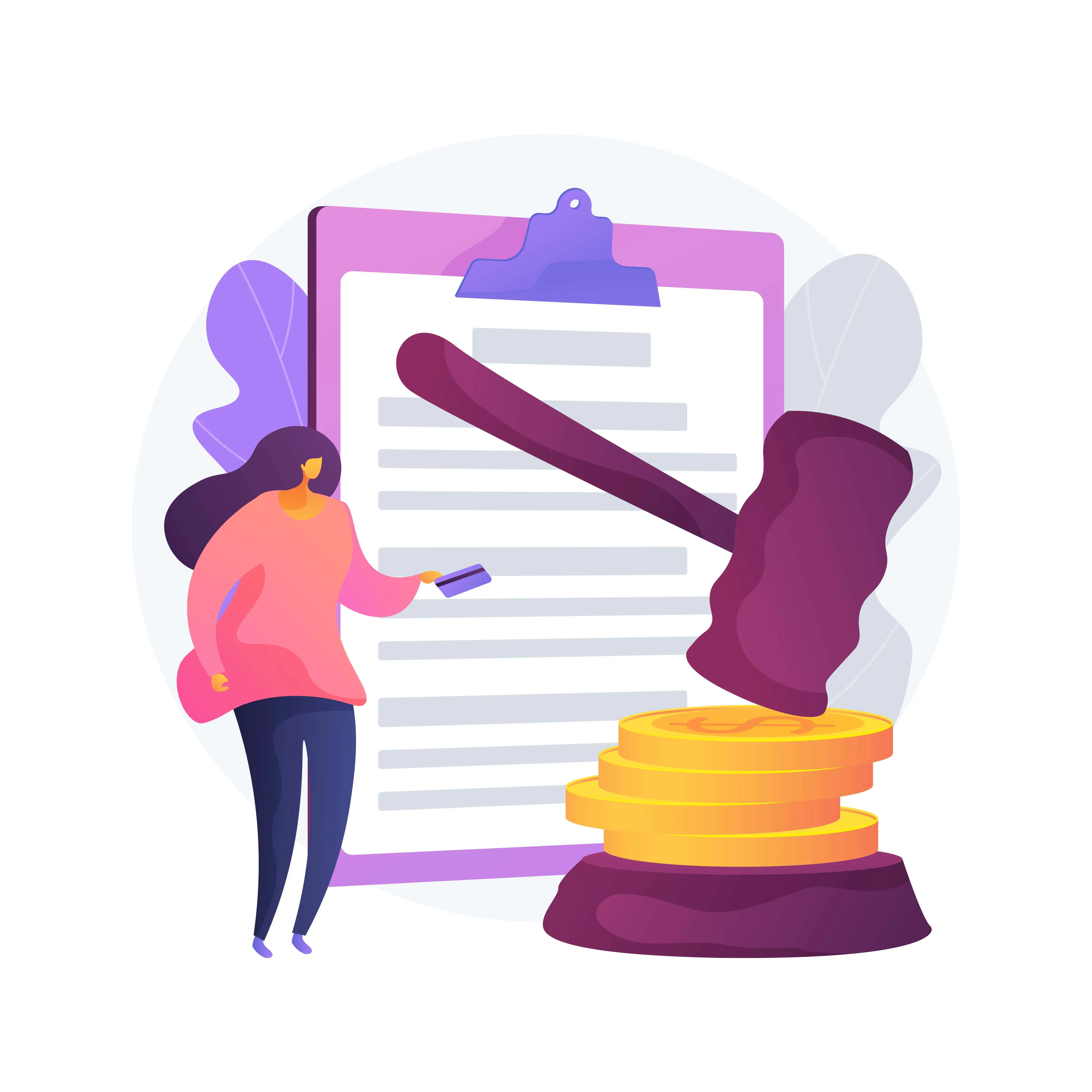Do Pending Charges Show up on a Background Check

For employers and hiring managers, the pre and post phases of hiring process can be full of risks. One of the biggest challenges is ensuring that they select candidates who not only have the important skills and experience but also have a clean legal record.
Pending charges can complicate this process, as they may show up on a background check and raise concerns about potential risks associated with hiring an individual who may be facing unresolved legal issues, and can contribute to delays in completing the background check.
A background check means a process used by an organisation or person to verify that an individual is who they claim to be, and check their past record to confirm education, employment history, and other activities, and for a criminal record to reduce hiring bias.
Background check with AI tools, such as those offered by Ferretly, make this process more efficient by using artificial intelligence to examine different types of information about an applicant.
What is a Pending Charge?
A pending charge refers to a criminal allegation that has been officially filed but has not yet been completely resolved by the court. This indicates that the individual has been accused of committing a crime, but a final decision has yet to be reached.
Pending charges can take time to be settled as they move through the court system, and during this period, an employer might want to know if these charges appear on a background check as a red flag.
Do Pending Charges Show up on a Background Check?
A pending charge will appear when employer does an employment background check. However, they might not always show up based on the state in which the offense occurred, the type of search, or the pending charge's level of severity.
For example, some states have laws that prevent pending charges from being shown in certain types of background checks. Additionally, the type of screening requested by the employer (e.g., a local vs. federal criminal check) can affect whether or not a pending charge is revealed.
Which Charges Show up on a Background Check?
Background checks play an important role in hiring process, providing employers with insights into an individual’s history, including legal records. However, what shows up in these reports can differ, depending on the type of background check and the laws governing such screenings. When conducting a background check, several types of charges can appear:
- Pending Charges: Charges that have been filed but are still awaiting court resolution.
- Arrests Without Conviction: Some background checks will show arrests even if no conviction followed.
- Convictions: These are charges where a court has found the individual guilty of a crime.
- Cleared or Restricte Records: In some cases, individuals may have certain records cleared or restricted, which means they will not appear in a background check, although this depends on the specific laws in each state.
- County Check: A county check can reveal local charges and records within specific counties, which may include pending charges, arrests, and convictions.
What to Do if a Candidate Has a Pending Charge?

When you find out a candidate has a pending charge, it’s important to approach the situation carefully. Here are steps you can follow:
- Review Company Policy
Make sure your company has a clear policy for handling background checks and pending charges. Always follow this policy regularly. - Understand the Nature of the Charge:
Think about whether the pending charge is a minor issue or something serious, like a violent crime. - Consult Legal Counsel:
Talk to legal experts to understand what actions you can take while following employment laws. - Consider the Role’s Requirements:
Check if the pending charge is related to the responsibilities of the job the candidate is applying for. - Conduct a Risk Assessment:
Weigh the potential risks of hiring the candidate based on their pending charge and how it might impact their work or your company’s reputation. - Ask the Candidate for Context:
It can be helpful to ask the candidate to explain their situation to better understand what’s going on. - Follow Fair Hiring Practices:
Make sure your decision-making process is fair and that you’re not unfairly judging the candidate based on incomplete or unrelated information. - Consider Temporary Employment or Delayed Hiring:
You might think about offering a temporary job or delaying your hiring decision until the pending charge is resolved. - Document Your Decision-Making Process:
Keep clear records of how you made your decision, including any risk assessments or legal advice, to protect your company from possible lawsuits.
What are the Pending Charges Laws?

Discovering a pending charge during a candidate’s background check can present challenges for employers. While such findings may raise concerns about the individual’s suitability for a role, it is essential to approach the situation with fairness and adherence to legal requirements.
Several laws govern how pending charges should be handled in the hiring process. Some of the most important ones include:
- Equal Employment Opportunity Commission (EEOC)
The EEOC protects people from being treated differently against in hiring based on their criminal history, unless it directly impacts the job. - Fair Credit Reporting Act (FCRA)
The Fair Credit Reporting Act (FCRA)requires that candidates are informed if a background check will be done and if any negative actions are taken because of the findings. - State and Local Laws
Different states and cities have their own laws about what can be included in a background check, especially regarding pending charges. - Ban the Box Laws
These laws stop employers from asking about criminal history on job applications and may limit what can be included in a background check. - Human Rights and Anti-Discrimination Laws
These laws protect individuals from unfair treatment during hiring based on their criminal record. - Title VII of the Civil Rights Act
Employers must ensure that background checks do not lead to discrimination based on race, color, or national origin, as stated in Title VII. - Federal Laws
Federal laws provide additional protections, ensuring that employers follow guidelines from the Federal Trade Commission for conducting background checks fairly and legally.
What States Prohibit Pending Charges on a Background Check?
Several states have laws that limit or ban the reporting of pending charges on background checks.
For example, in California, employers cannot consider pending charges during hiring, New York has similar rules, requiring employers to notify applicants if they take any negative action based on background checks.
Washington state law also prohibits reporting pending criminal charges, which helps protect applicants from bias over unresolved issues, Minnesota limits how employers can consider pending charges, ensuring candidates are not unfairly judged.
In Illinois, background checks cannot include pending charges, encouraging a focus on guilty verdicts instead, Massachusetts provides protections against reporting pending charges and requires employers to follow specific guidelines when evaluating a candidate’s history.
It is important for employers to understand their state's regulations and stay updated on any changes. Knowing these laws helps promote fair hiring practices and reduce the risk of unfair treatment. Consulting legal experts can also assist in navigating these rules and ensuring compliance.
When are Pending Charges Resolved?
Pending charges are resolved through a legal process that can take different amounts of time. After charges are filed, the court sets a trial date, which can be a few months to several years based on the court’s schedule and how complex the case is. How fast pending charges are resolved depends on how busy the legal system is, including available court resources and staff. In areas with fewer resources, cases take longer. The person on trial situation, like their willingness to cooperate, the quality of their lawyer, and their past record, can also affect how long it takes. Overall, resolving pending charges is complicated, so it’s important for defendants to work closely with their lawyers to handle the legal system effectively.
What does a Background Check Include?
Background checks look to verify details regarding an individual's identity, social security, past residences, criminal history, employment history, credit, and driving records. Other components might include:
- Criminal Record Check: Verifies any criminal records associated with the individual, including felonies and pending charges. For example, a job applicant with a theft charge may have this record displayed during the hiring process.
- Employment History Verification: Ensures that the applicant's work history aligns with their claims, such as employment dates and roles, research shows that 70% of job applicants have lied or would consider lying on their resumes.
- Identity and Education Verification: Ensures that the applicant's work history aligns with their claims, such as employment dates and roles
- Credit History Check: Helps determine an individual’s financial responsibility. For positions involving money handling, employers may want to ensure the candidate does not have severe financial difficulties.
- Driving Records: Crucial for roles that involve driving, this check includes traffic violations, suspensions, or DUIs, helping employers evaluate driving history.
- Drug Screening: Many companies require a drug test before employment to check for illegal substances. Failing the drug screening may prevent an applicant from being hired, especially for safety-sensitive positions.
- Social Media Screening: Companies like Ferretly offer Social Media background Screening to analyze online behavior. This analysis involves reviewing public social media profiles for signs of inappropriate behavior, such as harassment or discriminatory posts.
- Professional License Verification: Ensures that candidates for specific roles, such as teachers or nurses, hold valid and up-to-date licenses for their professions.
- Reference Checks: Employers often contact past supervisors or colleagues to confirm the candidate’s work performance and reliability. A strong reference can reinforce qualifications, while a negative one may raise concerns.
- Global or International Checks: Looks into criminal records, employment history, and educational qualifications in foreign countries for applicants who have lived or worked abroad.
- Civil Records: Reveals non-criminal matters such as lawsuits, restraining orders, or bankruptcies, helping assess a candidate's trustworthiness.
- Social Security number (SSN) verification: Confirms the individual's identity by checking the SSN against official databases, ensuring it is valid and matches the applicant's personal information.
- National terrorist watch list search: Cross-checks candidates against the national terrorist watch list to ensure they do not have connections to terrorism or other significant security threats.
How Ferretly Will Help in Detecting Pending Charges?
Ferretly’s Background check with AI offers a more thorough and faster solution for detecting pending charges and other background information. With AI technology, Ferretly can analyze vast amounts of data to give you a clearer picture of a candidate’s history. You can also Request a Demo to learn more about how Ferretly’s tools can help your hiring process.
Pending Charges - Frequently Asked Questions
1) How much time does it take for pending charges to show up?
Pending charges may show up immediately after they are filed, but it depends on the speed of the reporting agency and the type of background check being conducted.
2) Do bankruptcies show up on background checks?
Yes, bankruptcies can appear on background checks, especially if financial responsibility is a part of the job.
3) Does an applicant's pending charge indicate guilt?
No, a pending charge simply means the case is still in progress. It doesn’t indicate guilt.
4) Can an employer take adverse action because of pending charges?
Yes, but the employer must follow specific legal guidelines, including notifying the candidate and following the FCRA.
5) Do dismissed charges show up on a background check?
Dismissed charges may or may not appear depending on state laws and the depth of the background check.
6) What is not included in a background check?
Some things that might not show up in a background check include sealed or erased records, records from when a person was a juvenile, and some charges that are still waiting to be decided.
7) What is the Difference Between Felony and Minor Charges Pending?
A more serious charge can have a bigger impact on hiring decisions, but each situation should be considered based on the role and company policy.






